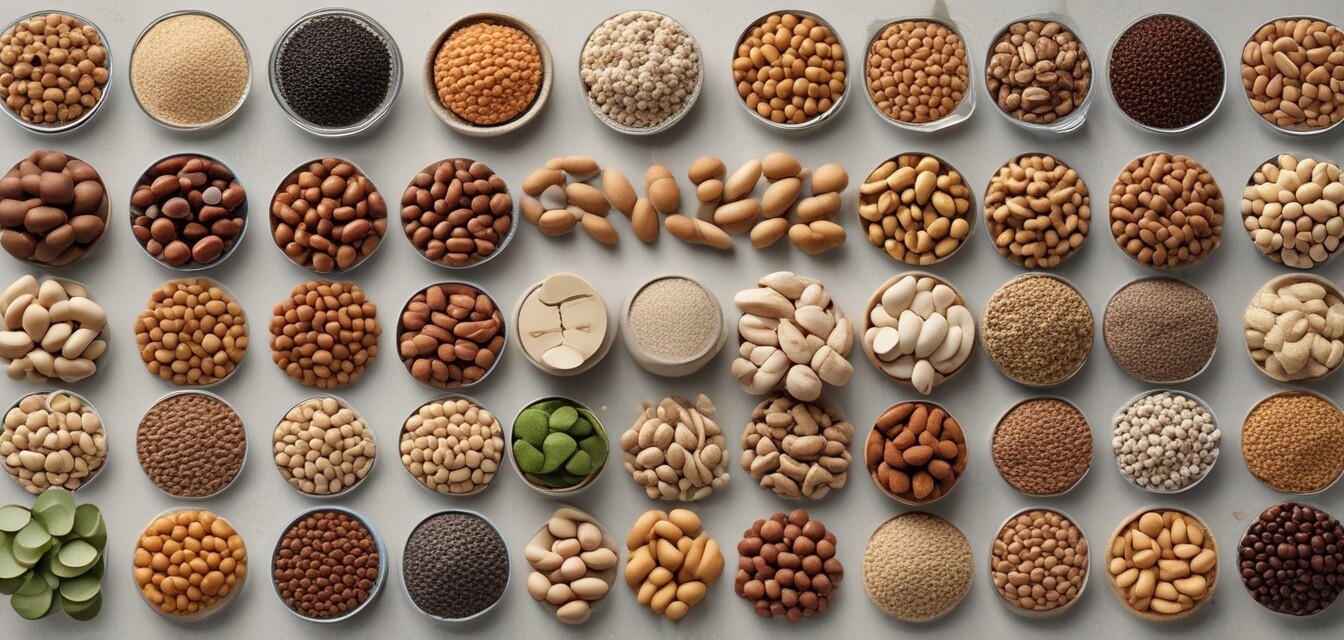
The Future of Protein Choices in Health and Fitness
- The demand for plant-based proteins is on the rise, driven by health and environmental concerns.
- New innovations in protein sourcing are emerging, emphasizing sustainability and ethical production.
- Consumer preferences are shifting towards transparent labeling and ingredient sourcing.
- Protein powders and supplements are being reformulated for better digestibility and efficiency.
The landscape of health and fitness is continuously evolving, and as we look toward the future, protein choices are at the forefront of this transformation. With increasing awareness of health implications, ethical sourcing practices, and environmental sustainability, consumers are now more discerning about their protein sources than ever before. In this article, we will explore the emerging trends that are shaping the future of protein choices, providing insights into how these changes may impact your dietary options.
The rise of plant-based proteins
Traditionally, protein sources have centered around animal products; however, the market is experiencing a significant shift towards plant-based alternatives. This change is largely driven by:
- Health concerns related to red and processed meats
- Environmental impacts of animal agriculture
- Rising popularity of vegetarian and vegan diets
Growing popularity of legumes and grains
Legumes such as lentils, chickpeas, and beans are rapidly becoming staples in various diets. They are rich in protein, fiber, and essential nutrients. Grains like quinoa and farro are also being explored for their protein content and health benefits. Here's a brief comparison of some popular plant-based protein sources:
| Protein Source | Protein Content (per 100g) | Other Nutrients |
|---|---|---|
| Lentils | 9g | Fiber, Iron, Folate |
| Chickpeas | 8g | Fiber, Manganese, Phosphorus |
| Quinoa | 4g | Magnesium, B Vitamins, Antioxidants |
Innovations in protein supplements
The future of protein supplements is also changing. Manufacturers are innovating to meet consumer needs by:
- Creating blends that combine multiple protein sources for enhanced benefits
- Improving taste and digestibility through advanced processing techniques
- Focusing on clean labels with fewer ingredients and transparent sourcing
Emerging protein sources
New sources of protein are being explored that could revolutionize the supplement space:
- Insect protein: Sustainable and rich in nutrients, insects like crickets are being considered as a protein source.
- Algal protein: Derived from algae, this protein has beneficial omega fatty acids and antioxidants.
- Fermented proteins: These offer better digestion and can improve gut health with probiotics included.
The impact of consumer preferences
As consumers demand transparency and sustainability, brands are responding by adapting their marketing strategies and product formulations. Here’s how:
- Ethical sourcing: Consumers want to know where their products come from. Brands committing to ethical practices are often favored.
- Health-focused labels: Clear labeling, including nutritional information and ingredient sourcing, has become essential.
- Sustainability certifications: Products with certifications that highlight sustainable practices are becoming more popular.
Key players in the market
The protein supplement market is witnessing increased competition, with new startups and established brands striving to capture consumer interest. Below is a simplified layout of key players:
| Brand | Focus Area | Unique Selling Proposition |
|---|---|---|
| Brand A | Vegan Protein | 100% plant-based and organic |
| Brand B | No Added Sugar | Focus on natural sweeteners |
| Brand C | Clean Label | Minimal ingredients with complete transparency |
Conclusion
The future of protein choices in health and fitness is promising and nuanced. As consumers become more educated about their nutrition and its broader implications, brands are evolving to accommodate these changes. The shift towards sustainable, plant-based, and ethically sourced proteins won't just cater to the health-conscious; it aligns with a broader movement towards improved global health and ecological integrity.
Stay informed with EcoDive
For more insights on sustainable options in the health and fitness space, make sure to check our News & Trends category. You can also explore about protein supplements, and other categories like herbal supplements and vegan supplements to find products that suit your lifestyle.
Tips for selecting the right protein supplements
- Check ingredient lists for transparency and quality.
- Look for reputable brands with positive reviews.
- Consider your dietary needs and lifestyle when choosing protein sources.
- Consult with a nutritionist or dietitian for personalized advice.